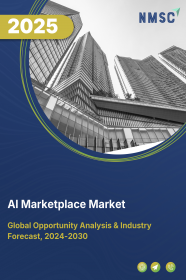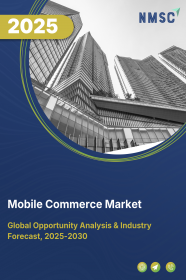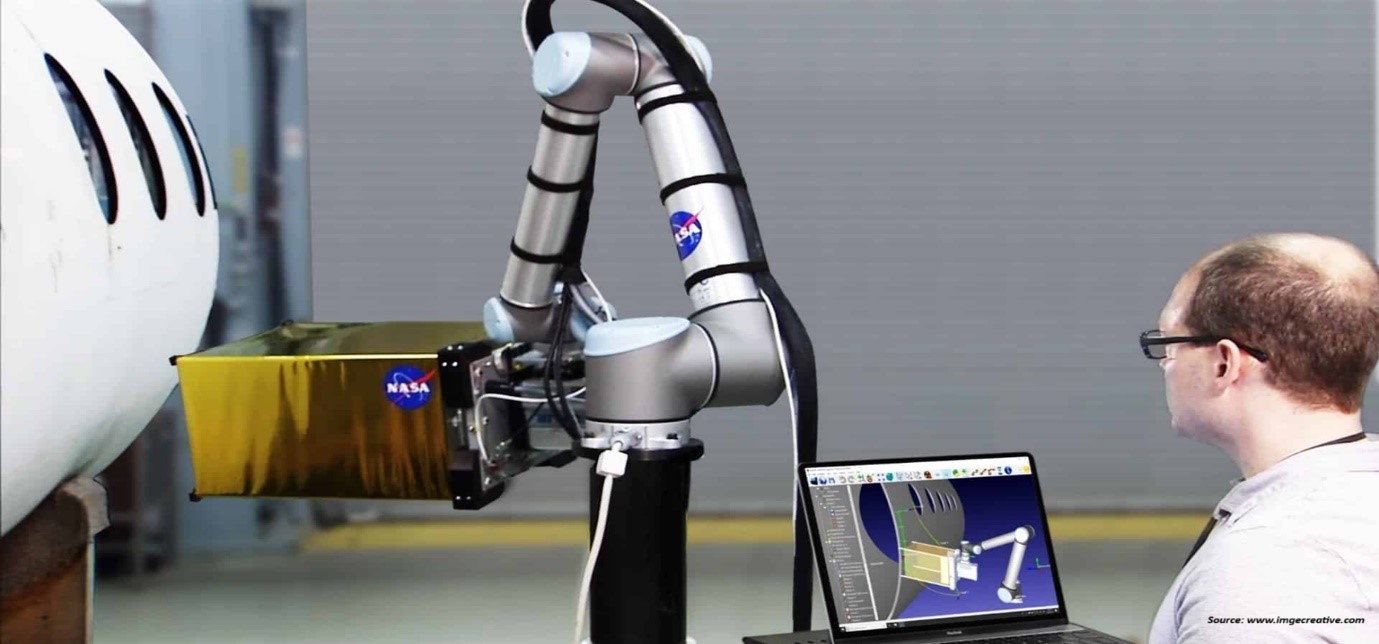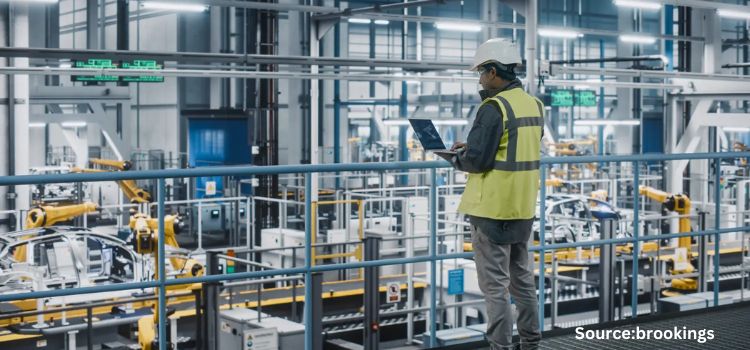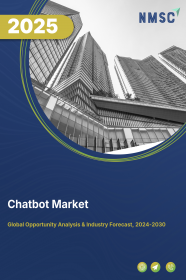
Chatbot Market by Type (Rule-based, AI-based, and Hybrid), by Technology (Natural Language Processing (NLP), Machine Learning (ML), Automated Speech Recognition (ASR), and Others), by Deployment (On-premises and Cloud-based), by Application (Customer Support, Branding & Advertising, Data Collection, Personal Assistance, Payment & Processing, and Others), and Others – Global Opportunity Analysis and Industry Forecast, 2024–2030
US Tariff Impact on Chatbot Market
Trump Tariffs Are Reshaping Global Business
Chatbot Market Overview
The global Chatbot Market size was valued at USD 4.93 billion in 2024, and is predicted to reach USD 21.68 billion by 2030, with a CAGR of 23.2% from 2023 to 2030. Chatbots, also known as conversational bots, refers to the industry segment focused on the development, deployment, and integration of AI-powered virtual assistants or conversational agents.
These AI-driven chatbots are designed to simulate human conversation through text or voice. These conversational bots are utilized across various platforms, including websites, mobile apps, and social media, to automate customer service, streamline support, and enhance user engagement.
This market is characterized by the integration of advanced AI capabilities to deliver more nuanced and context-aware interactions, making chatbots an essential tool for improving efficiency and engagement in numerous sectors.
Market Dynamics and Trends
The increasing adoption of chatbots in the banking sector to handle a large volume of customer inquiries and services drives the chatbot market demand. These tools enhance efficiency by providing instant responses, reducing operational costs, and improving customer satisfaction.
As reported by the Reserve Bank of India, approximately 80% of Indian banks adopted AI chatbots in 2024. As banks continue to integrate chatbots into their service offerings, the demand for advanced chatbot solutions is expected to rise, boosting the market.
Moreover, the rapid growth of e-commerce and online transactions has significantly increased the demand for virtual assistants, that are essential for enhancing customer service and supporting digital interactions.
Chatbots efficiently manage high volumes of customer inquiries, handle routine tasks, and assist with transactions, thereby reducing operational costs and improving service efficiency. As reported by the International Trade Association, the global B2B eCommerce sector reached approximately USD 24 trillion, while the B2C eCommerce sector reached about USD 3.6 trillion in 2024. Such growth in the industry is driving the demand for advanced automated responses, hence boosting the chatbot market expansion.
However, the high initial and upgradation costs that restrict small and medium-sized enterprises from integrating chatbots are restraining the growth of the market. On the contrary, the introduction of artificial intelligence (AI) and machine learning (ML) based chatbots enables businesses to provide more personalized and accurate responses to customers is anticipated to create ample growth opportunities in the chatbot market trends in the future.
For instance, in June 2023, One Zero, an Israeli digital bank, announced the launch of an AI-based chatbot that can answer customer questions and complete tasks. The chatbot is based on Generative Pretrained Transformer (GPT) technology, and is designed to be more personalized and engaging than traditional chatbots.
Market Segmentation and Scope of Study
The chatbot market report is divided on the basis of type, technology, deployment, application, end-user industry, and region. On the basis of type, the market is classified into rule-based, ai-based, and hybrid. On the basis of technology, the market is segmented into natural language processing (NLP), machine learning (ML), automated speech recognition (ASR), and others. On the basis of deployment, the market is segmented into on-premises and cloud-based. On the basis of application, the market is divided into customer support, branding & advertising, data collection, personal assistance, payment & processing, and others. On the basis of end-user industry, the market is categorized into BFSI, retail & e-commerce, healthcare, telecommunication, government, travel & hospitality, education, media & entertainment, and others. Regional breakdown and analysis of each of the aforesaid segments includes regions, such as North America, Europe, Asia-Pacific, and the Rest of the World (RoW).
Geographical Analysis
North America dominates the chatbot market share and is expected to continue dominating the sector during the forecasted period. This is due to the presence of prominent companies, such as Alphabet Inc, OpenAI, and Microsoft Corporation that continually drive innovation in customer service automation technologies. Their ongoing advancements and cutting-edge solutions contribute significantly to the region's strong position in the market.
For instance, in May 2024, OpenAI launched GPT-4o, a new model designed to enhance the performance and efficiency of ChatGPT, allowing users to engage with the AI in more versatile and dynamic ways. The chatbot offers more accurate and contextually relevant interactions, driving its adoption of chatbots across various industries in this region.
Also, the increasing adoption of chatbots in countries including the U.S. and Canada, is significantly driving demand in the BFSI sector to streamline the need for improved customer relationship management and service interactions.
As reported by the Consumer Financial Protection Bureau (CFPB) in 2022, approximately 37% of Americans interacted with a bank's chatbot, reflecting a growing acceptance and reliance on AI-driven solutions in financial services. As chatbot technology continues to evolve, this adoption rate is expected to rise, further boosting the demand for chatbots in the BFSI sector in these regions.
On the other hand, Asia-Pacific is expected to show a steady rise in chatbot market trends over the forecast period, driven by the rapid adoption of advanced technologies, including automation, within the region's well-established fintech industry.
According to a 2023 report by the Government of India, the country ranks as the third-largest financial technology ecosystem globally. This robust position reflects significant efforts to integrate chatbot technologies to enhance operational efficiency and improve service quality within the financial sector.
Furthermore, the expanding e-commerce industry in Asia-Pacific countries is further fueling the chatbot market growth. According to a report published on International Trade Administration by eMarketer, the online retail transaction in China reached at USD 2.29 trillion in 2020 and is expected to reach USD 3.56 trillion by 2024.
As online shopping continues to surge in popularity across the region, businesses are increasingly turning to chatbots to streamline customer interactions, boosting the overall growth of the market.
Competitive Landscape
The chatbot industry includes several market players, including Baidu, OpenAI, Alphabet Inc, Microsoft Corporation, Meta, Kore.ai, Artificial Solution, IBM Corporation, BotsCrew, and Haptik and others. These companies are opting for various strategies, such as product launches and business expansion to maintain their dominance in the sector.
For instance, in April 2024, Meta launched its new AI assistant, powered by the Llama 3 model, for its different platforms including Facebook, Instagram, WhatsApp, and Messenger. This launch aims to significantly enhance user experience by providing more intuitive and responsive interactions.
Also, in April 2024, Open AI expanded its operations in Asia by inaugurating its first office located in Tokyo, Japan. This expansion includes the introduction of a GPT-4 custom model optimized for Japanese, offering enhanced performance and efficiency.
Moreover, in March 2023, Alphabet Inc. introduced Gemini, an advanced AI-powered chatbot designed to elevate conversational AI capabilities. Gemini features enhanced contextual understanding, multilingual support, and real-time learning, that allow it to provide more accurate and personalized responses. improving user interactions and customer service efficiency.
Key Benefits
-
The chatbot market report provides a quantitative analysis of the current market estimations from 2024 to 2030. This analysis assists in identifying the prevailing industry opportunities to capitalize on.
-
The study comprises an extensive analysis of the current and future chatbot market trends to depict prevalent investment pockets in the industry.
-
The information related to key drivers, restraints, and opportunities and their impact on the market is provided in the report.
-
The competitive analysis of the key players along with their market share is provided in the report.
-
The SWOT analysis and Porter’s Five Forces model are elaborated in the study.
-
The value chain analysis in the market study provides a clear picture of the roles of stakeholders.
Chatbot Market Key Segments
By Type
-
Rule-based
-
AI-based
-
Hybrid
By Technology
-
Natural Language Processing (NLP)
-
Machine Learning (ML)
-
Automated Speech Recognition (ASR)
-
Others
By Deployment
-
On-premises
-
Cloud-based
By Application
-
Customer Support
-
Branding & Advertising
-
Data Collection
-
Personal Assistance
-
Payment & Processing
-
Others
By End-User Industry
-
BFSI
-
Retail & E-commerce
-
Healthcare
-
Telecommunication
-
Government
-
Travel & Hospitality
-
Education, Media & Entertainment
-
Others
By Region
-
North America
-
The U.S.
-
Canada
-
Mexico
-
-
Europe
-
The UK
-
Germany
-
France
-
Italy
-
Spain
-
Denmark
-
Netherlands
-
Finland
-
Sweden
-
Norway
-
Russia
-
Rest of Europe
-
-
Asia-Pacific
-
China
-
Japan
-
India
-
South Korea
-
Australia
-
Indonesia
-
Singapore
-
Taiwan
-
Thailand
-
Rest of Asia-Pacific
-
-
Rest of the World (RoW)
-
Latin America
-
Middle East
-
Africa
-
Key Players
-
Baidu
-
OpenAI
-
Alphabet Inc
-
Microsoft Corporation
-
Meta
-
Kore.ai
-
Artificial Solution
-
IBM Corporation
-
BotsCrew
-
haptics
REPORT SCOPE AND SEGMENTATION:
|
Parameters |
Details |
|
Market Size in 2023 |
USD 4.93 Billion |
|
Revenue Forecast in 2030 |
USD 21.68 Billion |
|
Growth Rate |
CAGR of 23.2% from 2024 to 2030 |
|
Analysis Period |
2023–2030 |
|
Base Year Considered |
2023 |
|
Forecast Period |
2024–2030 |
|
Market Size Estimation |
Billion (USD) |
|
Growth Factors |
|
|
Countries Covered |
28 |
|
Companies Profiled |
10 |
|
Market Share |
Available for 10 companies |
|
Customization Scope |
Free customization (equivalent to up to 80 working hours of analysts) after purchase. Addition or alteration to country, regional, and segment scope. |
|
Pricing and Purchase Options |
Avail customized purchase options to meet your exact research needs. |

















 Speak to Our Analyst
Speak to Our Analyst




